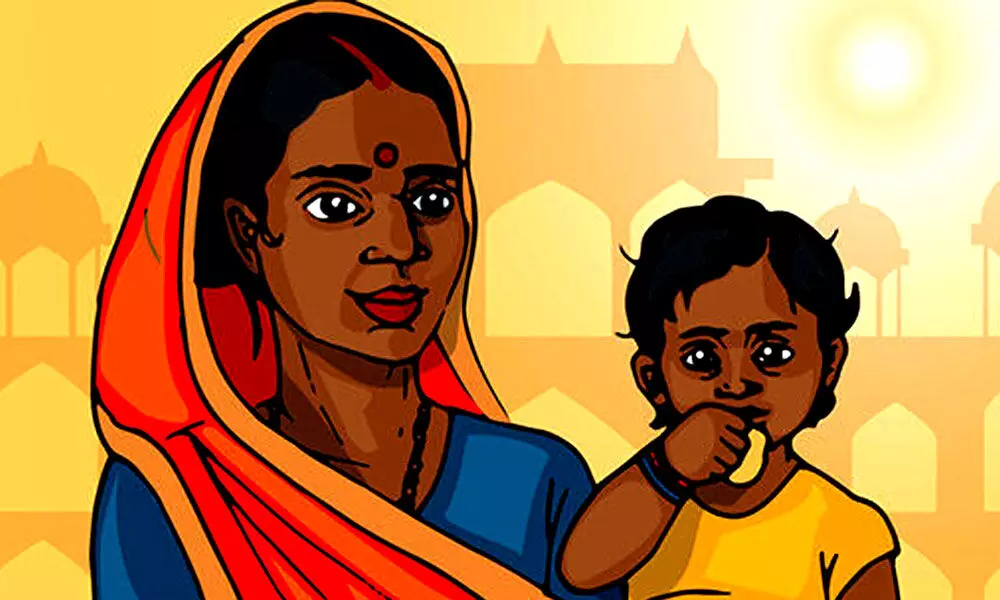Live
- Three persons admitted to hospital for diarrhea treatment
- First Star Outside Milky Way Captured: WOH G64 is 2,000 Times Larger Than the Sun
- Sikkim govt to constitute state Niti Ayog: CM Tamang
- CBI books Rajasthan narcotics inspector for Rs 3 lakh bribe
- Rajasthan bypolls: A tough contest between BJP and Congress
- Albania joins SEPA, paving way for EU integration
- Japanese government approves 250-billion USD economic package to ease price pain
- Six pharma companies to set up their units in Telangana
- The Unstable Events of a 17-Wicket Day in Perth: India vs Australia
- Dutch FM's Israel trip cancelled after Netanyahu's arrest warrant
Just In
India's Nutrition Programme Helps Address Nutritional Challenges


The Midday Meal scheme offers hot meals to the children attending government schools
In the year 1975, India launched a scheme, the integrated Child Development Services, this scheme is one of the oldest schemes, it has adopted a multi-pronged approach to children's well-being by integrating health, educational as well as nutritional interventions through a community network of anganwadi centres.
Our nation, India is very committed in addressing its nutritional challenges. We find, in the past decades, varied programmes as well as schemes have been launched and also expanded so that, the nation's nutritional situation improves.
In the year 1975, India launched a scheme, the integrated Child Development Services, this scheme is one of the oldest schemes, it has adopted a multi-pronged approach to children's well-being by integrating health, educational as well as nutritional interventions through a community network of anganwadi centres.
We find the measures initiated by the Indian government included a supplementary nutrition programme, growth monitoring and promotion, nutrition and health education, immunisation, health checkups and health referrals and preschool education.
The primary beneficiaries are children below 6 years as well as pregnant and lactating women. Today, the anganwadi services scheme operates through a network of nearing to 7,075 projects, implemented across 1.37 million anganwadi centres offering supplementary nutrition to 83.6 million beneficiaries.
Between the year, 2006 and 2016 due to the above programme, the supplementary nutrition intake has been increased from .6 % to 37.%, health and nutrition education from 3.2% to 21% and child specific services relating to immunization and growth monitoring from 10.4 to 24.2%.
The Midday Meal scheme offers hot meals to the children attending government schools, dates back to 1925, which has been started locally by the Madras Muncipal Corporation. To enhance enrolment retention as well as attendance in the schools and at the same time improving the nutritional level among the children, it was launched nationally in the year, 1995. Nearing to 91.2 million children across 1.14 million schools tend to benefit from this scheme.
There has been subsequent schemes which were started to nurture both women and children's health, which include Poshan Abhiyaan, all functioning under the ICDS umbrella. They include the Anganwadi Service Scheme, the PRadhan Mantri Matru Vandana Yojana(PMMVY), and the scheme for Adolescent girls.
According to National Food Security Act, 2013, it provides subsidized food grains under the targeted public distribution system. It tends to cover nearing to one-third of the population. The PMMVY is an maternity benefit programme, which has been launched nationally in the year, 2016, it offers a conditional cash transfer to the pregnant women so that they can have a safe delivery and good nutrition as well as feeding practices. Complementing the PMVVY, is the Janani Suraksha Yojan(JSY), wherein the beneficiaries would be eligible for a cash incentive after institutional delivery.

© 2024 Hyderabad Media House Limited/The Hans India. All rights reserved. Powered by hocalwire.com






